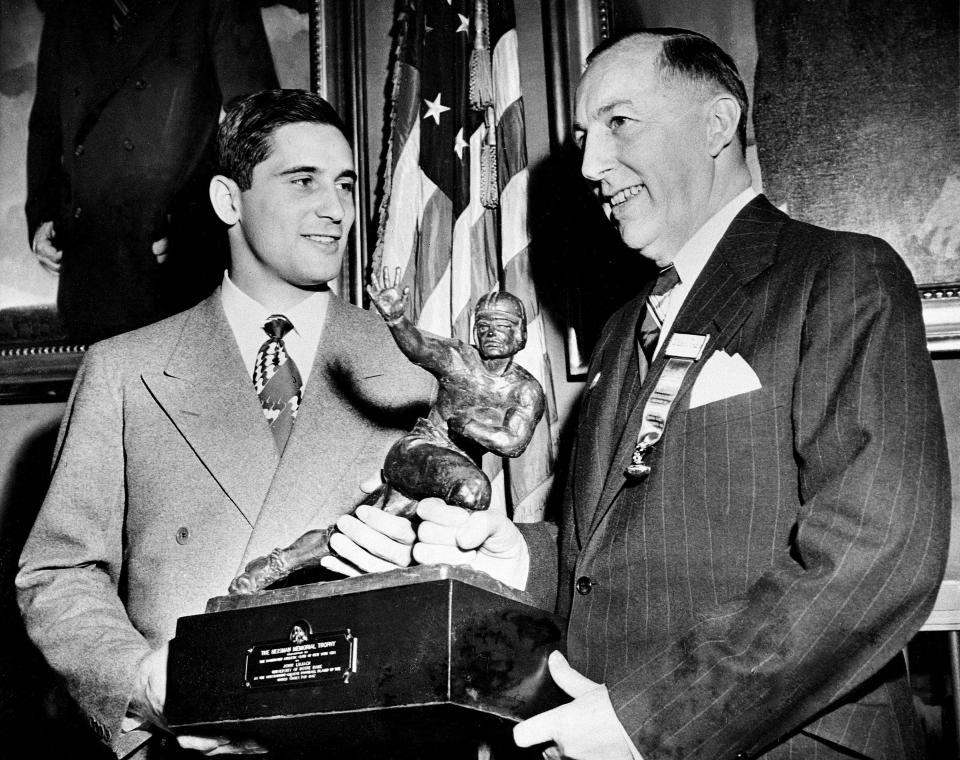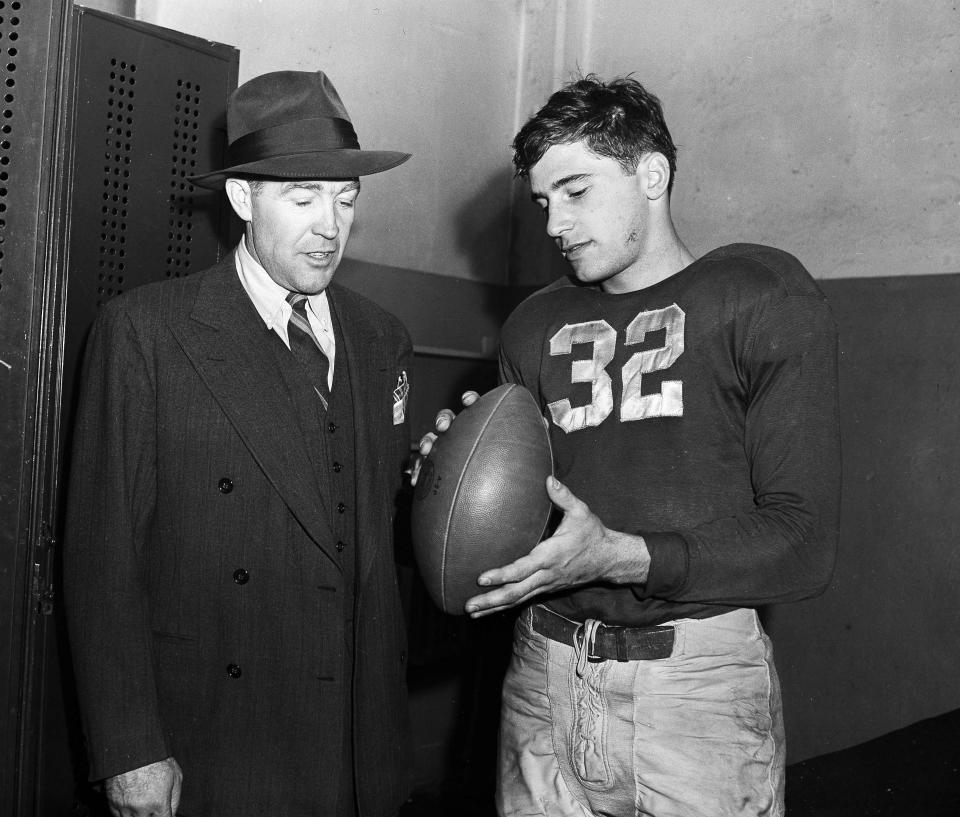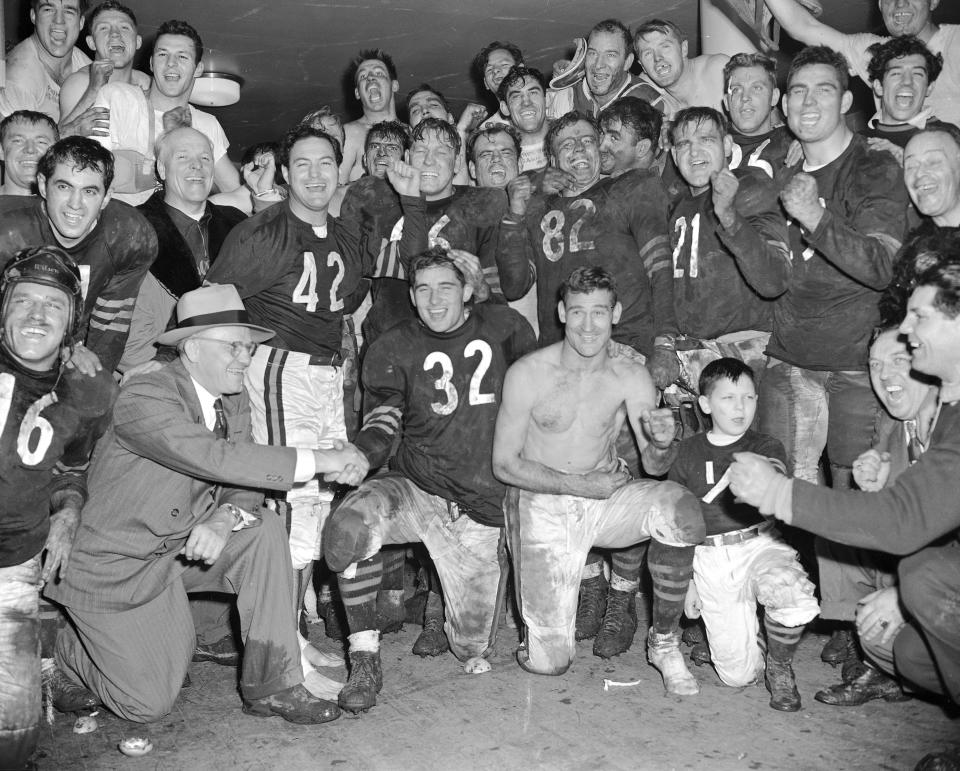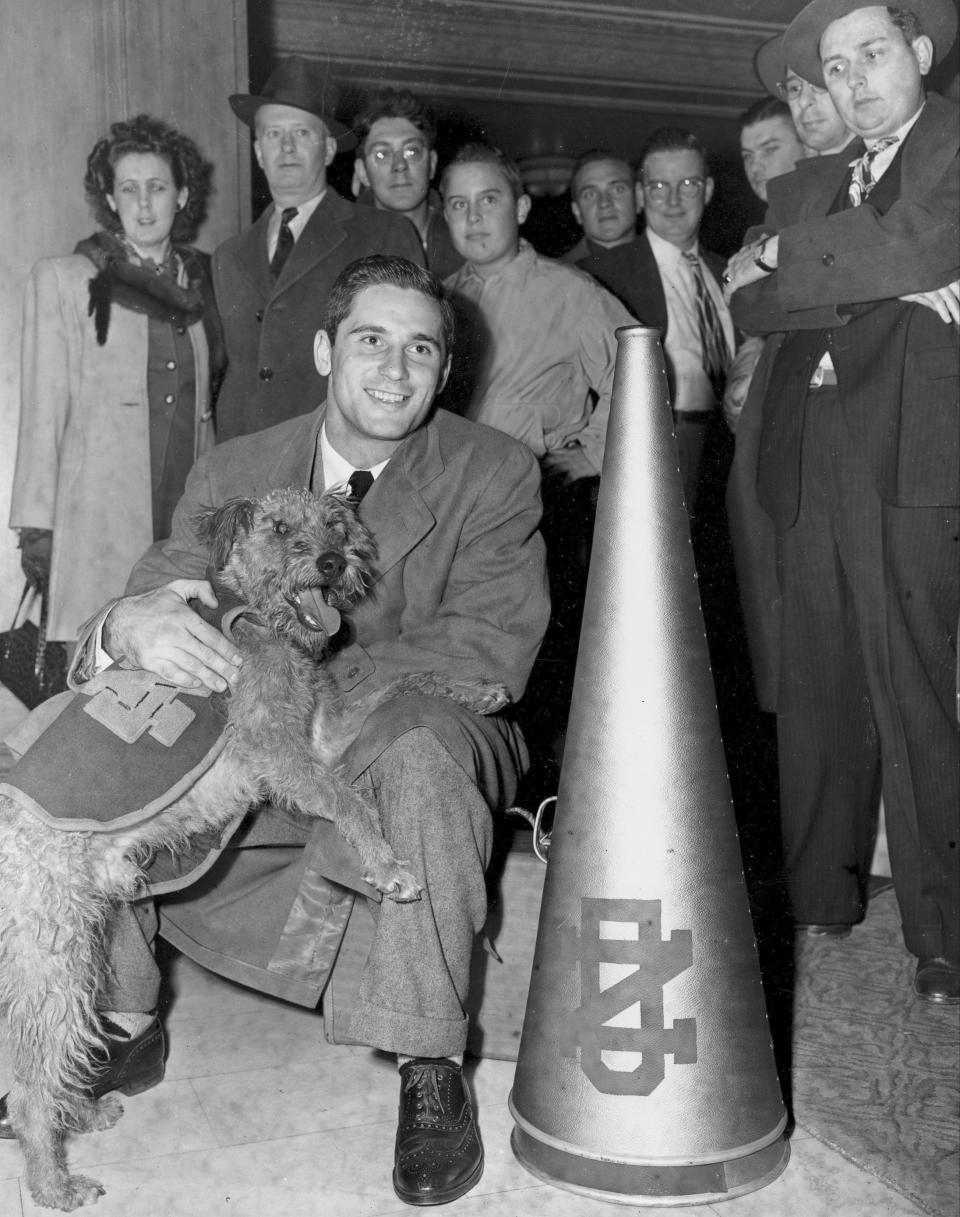Johnny Lujack, 1947 Heisman winner who led Notre Dame to 3 national titles, dies at the age of 98
- Oops!Something went wrong.Please try again later.
- Oops!Something went wrong.Please try again later.
Johnny Lujack was one of the faces of Notre Dame's golden age, the second of three Irish players to win the Heisman Trophy in the 1940s and the quarterback of three national championship teams.
“Even by Notre Dame standards, you always felt he was larger than life,” said John Heisler, who has written a dozen books on the history of the storied program where he was once was an associate athletic director. “Part of that comes with winning the Heisman Trophy, part comes from being a quarterback at Notre Dame and part comes from the sheer force of his personality.”
Lujack died at age 98 in Naples, Florida, on Tuesday following a brief illness. His granddaughter, Amy Schiller, said he had recently entered hospice care after having been in good health until a couple of weeks ago.
“He was not only a legend in Notre Dame football and the sports world,” Schiller said, “he was a legend as a father and grandfather and great grandfather.”
Lujack is considered one of the greatest Notre Dame players of all time. He was a two-time unanimous All-American who won the Heisman in 1947 and led the Irish to national titles in 1943, 1946 and 1947. He also lettered in baseball, basketball and track.
Lujack was ahead of his time as a passer and posted a 20-1-1 record as starting quarterback for coach Frank Leahy. The native of Connellsville, Pennsylvania, played for the Irish in 1942 and ‘43, served two years in the Navy during World War II, and returned to Notre Dame for the 1946 and ’47 seasons.
He was The Associated Press athlete of the year in 1947, when he was a first-round draft pick of the Chicago Bears. He played four seasons for the Bears, leading the team in scoring each year before retiring at age 26.
While Lujack had plenty of offensive highlights at Notre Dame, he is best remembered for a play he made as a defensive back in an era when players stayed on the field for nearly every play.
A standing-room-only crowd of about 75,000 packed Yankee Stadium in 1946 to see No. 1 Army — the two-time defending national champions — face then-rival Notre Dame, which was ranked No. 2. Lujack made the game-saving tackle against Doc Blanchard in a 0-0 tie in what is frequently referred to as the game of the century.
With the ball at the Army 44, Blanchard broke through the line and had open field down the left sideline before Lujack came from the other side to make a diving, shoestring tackle at the Irish 36.
“Understanding that people were playing both ways in that period, in some ways it’s ironic a guy who was a quarterback, and a great one, is remembered for that one play,” Heisler said.
Lujack downplayed the tackle of Blanchard, who won the Heisman in 1945.
“You were back there," Lujack said. “You were supposed to make the tackle.”
Lujack finished third in Heisman voting in 1946 before he won the award as the college game's outstanding player the next year, when he led the Irish to a 9-0 record and their second straight title.
Lujack intercepted eight passes as a rookie with the Bears and in 1949 he threw for 468 yards and six touchdowns in a 52-21 win over the Chicago Cardinals. He played in the Pro Bowl his final two seasons before retiring. He later owned a car dealership in Davenport, Iowa.
Lujack maintained strong ties to his alma mater. Though he spent much of his post-football life in Iowa, California and Florida, it was not uncommon for him to show up in South Bend for games and other functions. He still held eight season tickets as of last season.
When he lived in Indian Wells, California, Notre Dame's glee club flew out to sing for him on his 90th birthday, a moment that moved his late wife, Pat, to tears.
“He epitomizes what it means to be a Notre Dame man — family man, generous, kind,” said Beth Hunter, a senior associate athletic director who came to know Lujack during her time as executive director of the school’s Monogram Club.
Lujack was an avid golfer who recorded eight holes-in-one and continued to ride around courses on his cart long after he quit playing. He liked to tell people about the time he spilled a milkshake on his most famous golf partner — former President Gerald Ford.
“He was a celebrity and enjoyed it, very comfortable in his own skin,” Heisler said.
Heisler said it would be difficult to rank Lujack among greatest Notre Dame quarterbacks, let alone college quarterbacks.
“Those post-war years, and not just at Notre Dame but particularly at Notre Dame, there were unbelievably talented teams,” Heisler said. “If you were successful during the 1940s, you had to be pretty darned good because there were so many other great players you were rubbing elbows with. He was one of them.”
___
Former AP Sports Writer Tom Coyne contributed.
___
AP college football: https://apnews.com/hub/college-football and https://twitter.com/ap_top25 Sign up for the AP Top 25 newsletter here: https://link.apnews.com/join/6nr/morning-wire-newsletter-footer-internal-ads




